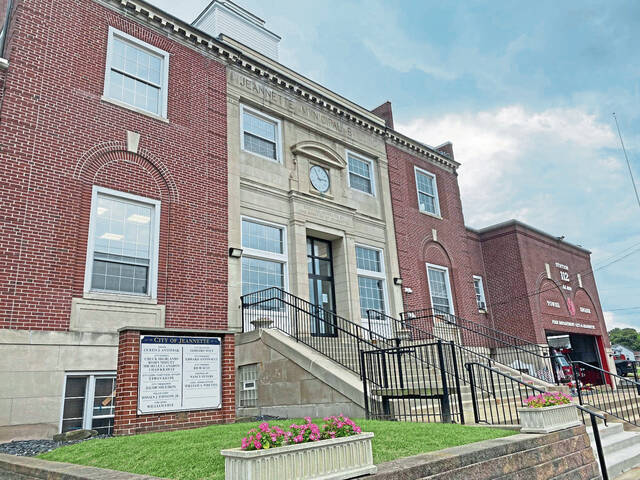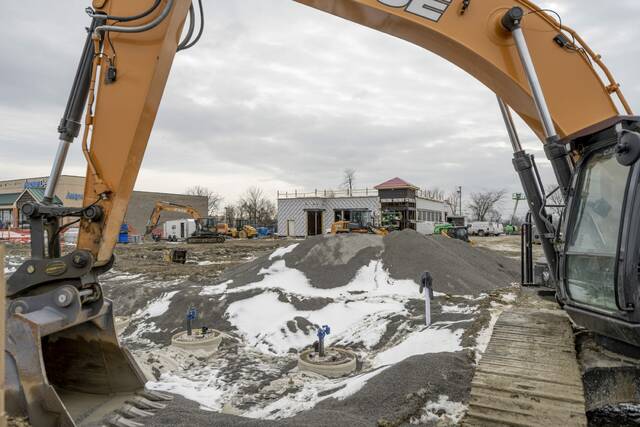Four years from now, there could be a dozen or so students from Indiana University of Pennsylvania’s medical school doing some of their clincal training at Torrance State Hospital near Blairsville.
The experiences these IUP students from the proposed College of Osteopathic Medicine would face at the state hospital in Derry Township may lead them to be part of the solution to the shortage of mental health and behavioral health practitioners in rural areas, said officials from IUP and Torrance State Hospital.
“Rural psychiatry is a great need in Pennsylvania,” said Stacey Keilman, CEO at Torrance, one of six state hospitals providing in-patient treatment for those suffering mental health issues. The hospital has about 300 patients — down from about 3,000 in the 1960s.
“Pennsylvania is facing a mental health crisis, and there are too few medical professionals to provide it. There is a dire health care situation in rural parts of Pennsylvania,” said Michael Driscoll, IUP president.
Because of that lack of health care, Driscoll said, too many Pennsylvanians forgo regular preventive health care but then face more serious health problems.
To help address that situation, Driscoll and Dr. Miko Rose, who is to be the dean of the proposed medical college, signed an agreement last week with Torrance hospital officials for the facility to be a place where medical students do their clinical training.
“Students training in rural settings really encourages people to stay in a rural setting,” said Dr. Valerie Arkoosh, secretary of the state Department of Human Services.
IUP also reached an agreement in February with the Clarion Psychiatric Center for students to do clinical training at that facility.
The agreement with Torrance is IUP’s 12th clinical training agreement, having reached similar ones with hospitals in Indiana, Johnstown, Clarion, Kittanning, Punxsutawney and Hyndman.
Driscoll said offering clinical training sites for students is a requirement of the American Osteopathic Association’s Commission on Osteopathic College Accreditation for a medical college to win accreditation. It’s typically a three- to five-year process.
“This is another step to opening the first public college of osteopathic medicine” in the state, Driscoll said.
Other colleges of osteopathic medicine are at private institutions, such as Seton Hill University in Greensburg and Duquesne University in Pittsburgh.
Driscoll said IUP has been working on plans to create a medical college since 2021 and announced its intentions in December 2022.
The university is on track to accept its first class of students — expected to number around 60 — in the 2027-28 school year, Driscoll said.
If IUP wins accreditation, renovates and builds facilities for the medical college and hires faculty and staff, Driscoll said, the long process could cost as much as $100 million.
Because the medical students focus on classroom work for the first two years of their medical training, the first students will not be doing their clinical training at Torrance or other facilities until 2029.
At Torrance, the medical students will deal with patients who are learning coping skills to manage their illness in a less structured setting that is safe for them, Arkoosh said. They will learn about the unique challenges mental health patients face.
Rose, who also is founding associate dean of clinical affairs and graduate medical education, acknowledged that it’s hard to retain physicians in rural areas.
The key to doing that, she said, “is to focus on the first-generation students and flip the script for rural areas,” pointing out the benefits of living in such an area, away from the stresses of urban living.













